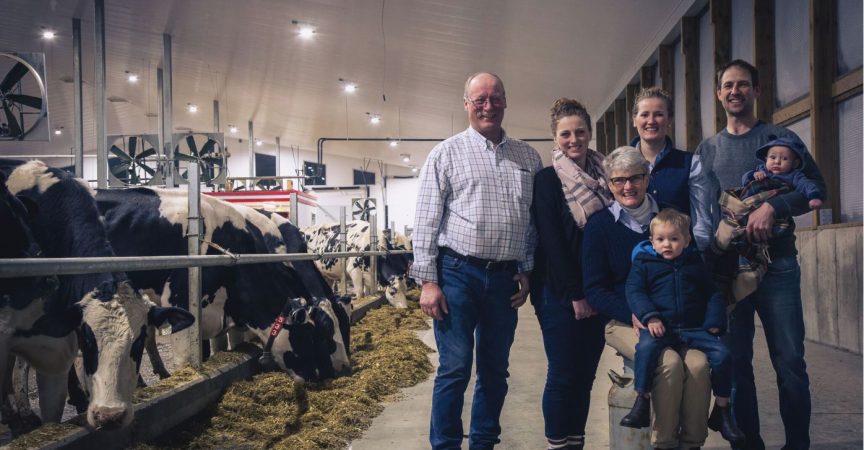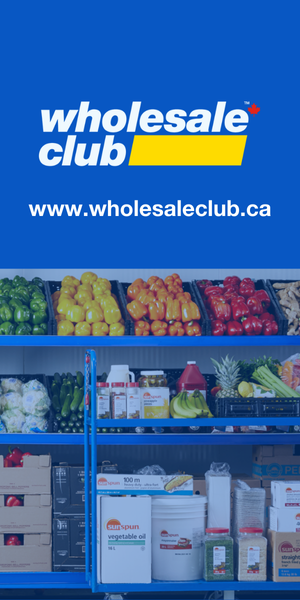Modern farm to table: what’s next?
Marianne Edward of Sheldon Creek Dairy shares her perspective on the next frontier of farming: storytelling
About 98 per cent of Canadian farms are family businesses, many of them multi-generational and characterized by deep knowledge of farming practice, a sense of heritage and tradition, and strong community, environmental, and social roots. However, like most modern Canadian businesses, farming is rapidly evolving and innovating, imbued with a new sense of value and purpose and a vision that reflects the ideals of an increasingly engaged and curious consumer group.
Consumers have become more vocal and selective about the way their food is grown, raised, and produced. Farmers don’t see this as a threat. They are proud of what they do, and encourage the interest and the opportunity to engage in meaningful, honest dialogue with both the food industry and consumers. Many young and not-so-young farmers have embraced social media platforms, sharing their on-farm work and life with openness and honesty.
The iconic overalls and rubber boots may remain practical uniforms of the profession, however the vision and outlook of the people who feed our nation has shifted in line with universal social and generational ideals. Modern farmers are informed, educated, and sophisticated business owners, like Marianne Edward, Marketing and Operations Director at Sheldon Creek Dairy in Loretto, Ontario, a perfect representative of the new generation of Canadian farmers.
Speaking with Marianne, you’re immediately struck by her intelligence and her straight-talking manner. She does not pull punches or shy away from truth of a profession and lifestyle she’s very proud of. What social and economic forces do you feel have shaped Canada’s dairy and general agriculture industry over the last 10 years?
“Fifteen years ago, I went to a conference and the big question was how are we going to feed the world in 2020. In the ensuing years the ag industry has developed technology to grow food well, more efficiently, with less pesticides, and with fewer people in the fields and barns.
There is more data and more technology in place to guide farmers in efficiency, crop and animal health for a more sustainable outcome. You hear talk about ‘the good old days’ when we used a horse and buggy to plough the fields, but we have to adapt to technology because there are a lot more mouths to feed. We adopted technology and efficiencies and honed in on how to grow good, safe, high-quality food for a growing population that does not feed itself. It’s almost 2020 and we’re sustainably putting food on people’s plates.”
So, what’s next?
“We have to start telling our story because we haven’t had to before. Our new job as farmers—and this is the real challenge—is educating the disconnected. As dairy farmers, we are really good at taking care of our animals, our crops—we can get completely caught up in it. This is a different sort of life than any other business out there. It’s like having 55 dogs with distinct personalities, names, and needs. You wouldn’t do this if you didn’t love it. Most dairy farmers are the most humble, community-driven neighbours you could find, but typically they don’t crave the limelight, so there’s a challenge. It’s up to us as farmers to tell our story, and no one is going to tell it better than we will. We should be very, very proud of the quality and sustainability of our dairy industry. Everyone is following the same rules.
A few years ago, the Egg Farmers of Ontario campaign put a face to the eggs on your table, creating a connection with consumers. We’re starting, which is crucial because other people have been telling our story for us and it’s wrong. We need to be our own myth busters.
The way milk gets from farm to table is all the same, whether it’s grass fed, organic or regular. It’s all the same. Somehow, we need to use our own stories to describe our product, not shelf-level descriptors like non-GMO, grass-fed, etc., because our base product’s journey from farm to table is all the same. Take beef for example…If you buy Canadian, you didn’t get any hormones or antibiotics in your beef, but big companies market these features as though they were exceptional. It’s marketing, and we have to tell our stories as farmers first, but we need to do it collaboratively. As farmers behind the raw product, we are all here to provide a superior product that will give you the nutrition that you need. We’re doing it the way our grandparents did, but we use technology to improve quality and best practices.
That’s what chefs are doing. When they buy our milk and they use it to make a beautiful creme fraiche, there’s a conversation that comes from that. Chefs are truly bringing terroir and the story of taste to their plates. Customers see that our cream really does rise to the top. That’s where the opportunities and the trust come from, between the farmers and the chefs.”
The relationship between farmers, chefs, and consumers is an important one as its bias is toward simplicity and authenticity over marketing. How important is this relationship to agri-business? “Chefs are truly our front-line marketers. They are the people who craft our ingredients and products into something that’s more amazing than they already were. They bring it to the table and tell the story of where the food came from and the people behind it. Relationships with chefs, restaurants and buyers are pivotal, and they usually start with a phone call. That direct connection is crucial to accessing the underlying agricultural community that mirrors the underground chef culture. Everyone knows everyone and is connected. If a chef makes a personal connection with farmers, they will begin to access the community goodwill of a much larger group.
Too often, we answer our phone and we’re bombarded with questions—are you non-GMO? Organic? Local? Look, we’ll tell you the truth, we’ll invite you out to the farm, we’ll be completely transparent—that’s farming. If you call me and ask about the product, I’ll happily walk you through everything and anything you want to know, because we want you to tell our story.”
You are a millennial. What impact do you think the values and ideas that define your generation will have on Canadian farming and Canadian food?
“Our generation is looking for something unique. When we go to the grocery store, we’re not necessarily looking for a discount. Greenhouse farming has made strawberries available in February and this has changed our palates. We don’t just want beets and potatoes in the winter. We want what we want and we’re willing to pay a little more for it.
We are not stuck in our traditional plate. We branch out of our habits and try other types of foods and dishes. We’re not eating just the local, seasonal products. We’re eating as we feel we want and we’re looking for quality, uniqueness, and flavour.
The challenge is our generation is very busy. We want fast food, but healthy fast food. We want organic, local, non-GMO, and we want to pay very little for it. But…you can’t get fast, quality food cheap. If you want that, buy an apple.
It’s tough for agriculture to respond to the demand of people liking good food, but not understanding the effort that goes into producing it. If you have money in your pocket, you have food in your mouth. Most Canadian-born millennials have not experienced a food crisis—we should be very appreciative of that.”
You are also a consumer, and a mother. When making food choices for your family, what matters to you most?
“Like any mother, you want the best for your kids. I want to ensure my kids live great lives, and become the best people they can be. For me, when I’m making those decisions, I’m doing the same as every other mother.
I’m looking for local, high-quality food and I will spend more because I know it’s being grown close to home. I maybe know a little too much about the food industry, and that plays into my decisions too.
When I buy my food, I don’t just go to one location. I get my chicken up the road, vegetables from Alliston. I will go the distance to get my food because I know the quality is high. I would never want to produce a product that wasn’t superior, because we drink and eat it too.
I will wear less expensive clothes or worn-out shoes to make sure my kids have the quality of food they need. Hopefully they’ll continue to make good food decisions as they grow and move forward in their own lives, and be truly informed consumers.”
What do you want consumers to know or understand about dairy farming in Canada?
“There’s no food like it. It’s been around for centuries. It has 16 essential nutrients. Not a factory in the world can make this product.
Only nature can, and that is magic.”









